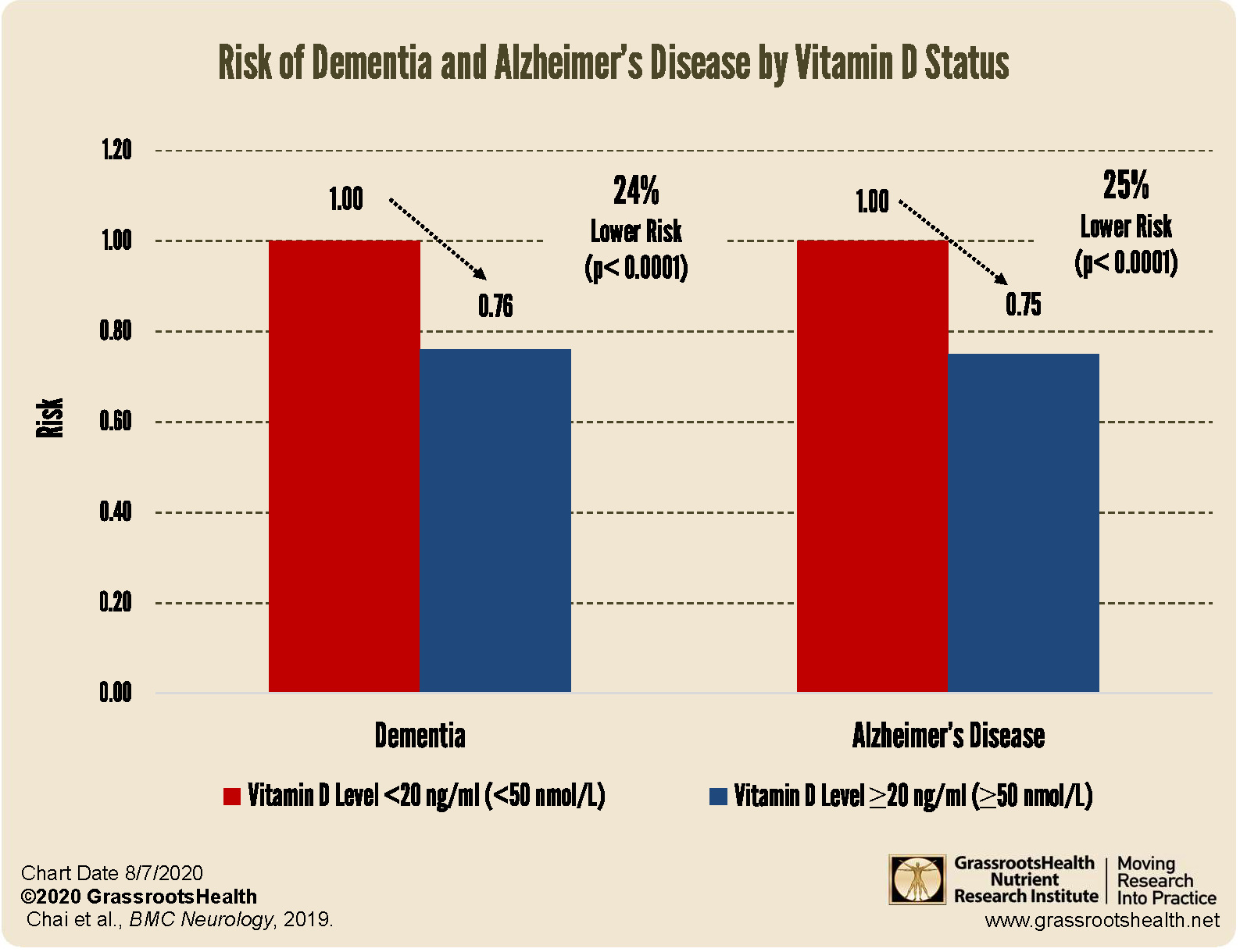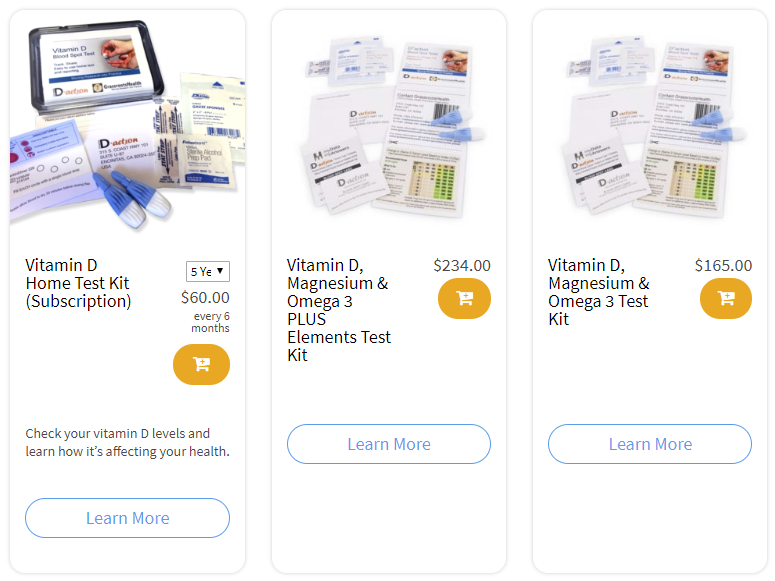Published on August 10, 2020
 Several nutrients, from omega-3 fatty acids and B vitamins to vitamin D and magnesium, are known to have a significant effect on cognitive health, including protective benefits against dementia and Alzheimer’s Disease (AD). Low vitamin D levels especially have been linked to an increased risk of AD and other dementias. A 2017 study by Feart et al. found a significant association between vitamin D deficiency and faster cognitive decline, as well as a 3-fold increase in the risk of AD – suggesting a protective effect of vitamin D levels at or above 20 ng/ml (50 nmol/L) for brain health and a decreased risk of AD over time.
Several nutrients, from omega-3 fatty acids and B vitamins to vitamin D and magnesium, are known to have a significant effect on cognitive health, including protective benefits against dementia and Alzheimer’s Disease (AD). Low vitamin D levels especially have been linked to an increased risk of AD and other dementias. A 2017 study by Feart et al. found a significant association between vitamin D deficiency and faster cognitive decline, as well as a 3-fold increase in the risk of AD – suggesting a protective effect of vitamin D levels at or above 20 ng/ml (50 nmol/L) for brain health and a decreased risk of AD over time.
Updated Meta-analysis Confirms Vitamin D as Risk Factor for Dementia and AD
A recently updated meta-analysis by Chai et al. confirmed a significant association between higher levels of vitamin D (levels at or above 20 ng/ml or 50 nmol/L) and a decreased risk for both dementia and AD.
Data from a total of 21,784 participants in 11 different studies was included in the analysis for risk of dementia, while data from 14,618 participants in 6 different studies was analyzed for AD. As illustrated in the chart above, the authors found an overall 24% lower risk of dementia and a 25% lower risk of AD for those whose vitamin D levels were at or above 20 ng/ml (50 nmol/L) compared to those with levels below 20 ng/ml.
Could your vitamin D level be affecting your mental health?
Take the steps necessary to avoid a low vitamin D level and the negative health consequences associated with it. Make sure you know your vitamin D level by testing today, and adjust your supplementation and/or lifestyle as needed to keep it at a level of 40-60 ng/ml (100-150 nmol/L).
Are You Getting Enough Vitamin D to Help Yourself?
We’re in a time of great crisis that could be greatly affected by making sure you and everyone you know has a serum level of at least 40 ng/ml. Help us help you.
Do you know what your vitamin D level is? Be sure to test today to find out, and take steps to keep it within a target of 40-60 ng/ml or 100-150 nmol/L! Give your immune system the nutrients it needs to support a healthy you and protect yourself from unnecessary diseases.
GrassrootsHealth Nutrient Research Institute is preparing to do a Community RCT with the use of our myData-myAnswers nutrient health system that over 15,000 people are already using for their health. We will demonstrate how one can use the Nutrient Research Model established by Dr. Robert Heaney to establish the effect of vitamin D serum levels of at least 40 ng/ml (100 nmol/L) on risk reduction with different ethnicities in the population. Please let us know if you’re interested in helping sponsor this project.
CLICK HERE for updates and new information about the project.
Through GrassrootsHealth Nutrient Research Institute, you can also test your essential elements magnesium, copper, zinc and selenium, toxins such as lead, mercury and cadmium, as well as your omega-3 levels, inflammation levels and thyroid stimulating hormone (TSH) level. Find out your levels today! Log on to the test selection page (click the link below) to get your tests and see for yourself if your levels can be improved.
Make sure you track your results before and after, about every 6 months!
Click Here to Access the Test Page
How can I track my nutrient intake and levels over time?
To help you track your supplement use and nutrient levels, GrassrootsHealth has created the Personal Health Nutrient Decision System called
For each specific supplement, you can track what days you take it, how much, and many other details. This will help you know your true supplemental intake and what patterns of use work for you to reach and maintain optimum nutrient levels. Check it out today!









